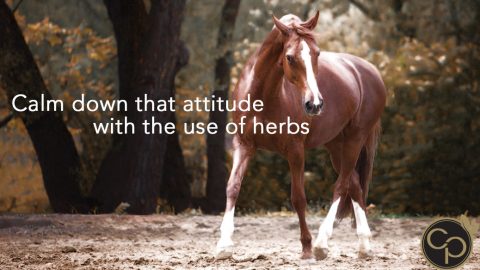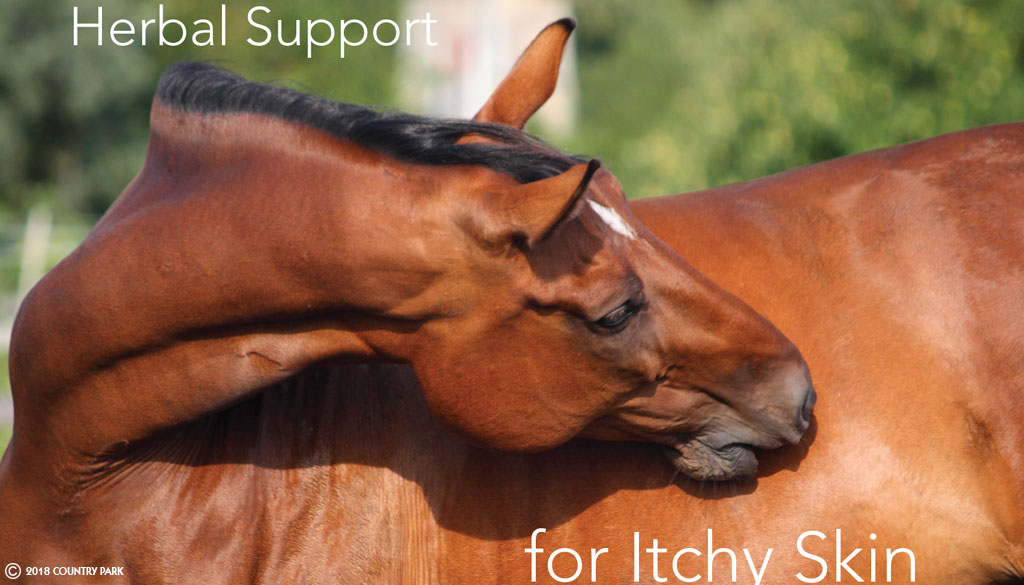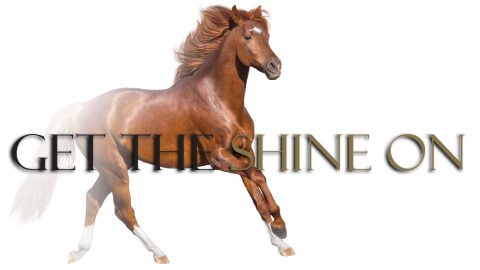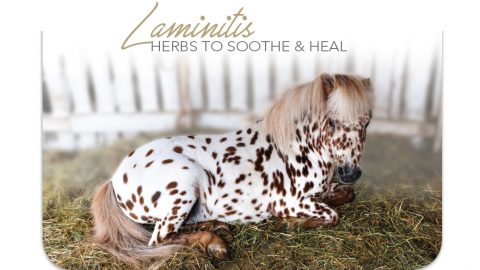
Breeding and producing offspring is one of the natural cycles of life, and as with all areas of life often has its own challenges. For complicated pregnancies your veterinarian is your main source of advice. With general health support the use of gentle herbs can be of assistance in preparing for ‘romance’ and with the arrival of a new life in your paddock.
Preparing your mare
 When it comes to the female reproductive system, raspberry leaf is one of the primary herbs to consider. As a preparatory herb it is an ideal herb to give for three months before sending a mare to a stallion, especially when her uterus has a poor grading. If you have not been giving raspberry leaf prior to pregnancy avoid using until six weeks before she is due to foal for improving the efficiency of labour. Then continue for two to three months after delivery to help with restoring tone to the uterus. It is an astringent herb and may interfere with medication absorption. If your mare has had difficult pregnancies in the past, consult with your veterinarian in case raspberry leaf is not a suitable herb for your mare.
When it comes to the female reproductive system, raspberry leaf is one of the primary herbs to consider. As a preparatory herb it is an ideal herb to give for three months before sending a mare to a stallion, especially when her uterus has a poor grading. If you have not been giving raspberry leaf prior to pregnancy avoid using until six weeks before she is due to foal for improving the efficiency of labour. Then continue for two to three months after delivery to help with restoring tone to the uterus. It is an astringent herb and may interfere with medication absorption. If your mare has had difficult pregnancies in the past, consult with your veterinarian in case raspberry leaf is not a suitable herb for your mare.
Chamomile is traditionally used as a digestive nervine and has a great affinity with the female reproductive system and your mare’s preparation. If a mare is cranky or nasty when in season, this is the herb to give for three months before she is served. Avoid early in pregnancy due to its mild diuretic action, but later chamomile is compatible with breast feeding once your foal has arrived and settling for mare and foal.
Two other herbs that can help with preparing a mare for breeding are fennel and fenugreek. Both are useful with mares leading up to service that have previously had difficulty conceiving. Giving one teaspoon to one tablespoon of each in feed for three to six months can be helpful.
Once the foal has arrived, both fennel and fenugreek enhance and promote milk production, and fenugreek is supportive of mares who are slow to recover after delivering the foal.
Careful use of herbs
 If your mare needs antibiotics fennel can reduce the uptake of this type of drug. If a mare is anaemic fenugreek may inhibit iron absorption. In herbal folklore fenugreek is described as abortive so avoid during pregnancy. Garlic can taint the flavour of milk.
If your mare needs antibiotics fennel can reduce the uptake of this type of drug. If a mare is anaemic fenugreek may inhibit iron absorption. In herbal folklore fenugreek is described as abortive so avoid during pregnancy. Garlic can taint the flavour of milk.
Overall, if your mare is healthy there is no need to add herbs during her pregnancy. If your mare has had difficulties in previous pregnancies avoid introducing herbs during the pregnancy, they may not cause the loss of the foal but the emotional ‘what if ..’ can be difficult to cope with if a pregnancy does not go full term and there is any doubt associated with the herbs.
There are other herbs that can help with fertility, chaste tree berry is often useful for trying to trigger ovulation, but does need to be monitored professionally, and avoided if you are using hormone therapy.
When it comes time to wean, peppermint leaf can help with turning off milk, and lemon balm is supportive of the ‘letting go’ process.
Supporting herbs for your breeding stallion
 For supporting your stallion’s wellbeing take a broad approach with gentle herbs. If there is a specific health issue there are herbs that can target the reproductive organs specifically. These herbs require a fine balance and better to consult a professional herbalist or your veterinarian.
For supporting your stallion’s wellbeing take a broad approach with gentle herbs. If there is a specific health issue there are herbs that can target the reproductive organs specifically. These herbs require a fine balance and better to consult a professional herbalist or your veterinarian.
Parsley leaf and rosehips can support your stallion with the bursts of energy they need when serving a mare. Parsley leaf is very high in iron while both parsley and rosehips are high in vitamin C to support adrenal function with the stallion’s recovery. Parsley is also documented as a mild aphrodisiac herb useful in supporting prostate health.
Another herb useful for supporting stamina is nettles, again high in vitamin c it is also one of the most nutritional herbs that you can give your stallion as a general support herb. If a stallion becomes irritated in his genital area, cornsilk is a useful herb to soothe a swollen or sensitive sheath.
A huge amount of effort comes from the hind quarter muscles and if it’s a general soreness that niggles at the stallion, turmeric powder is useful for low grade inflammation and can be given daily throughout the season. If the stallion pulls up particularly sore, a day or two of devils claw can be useful in reducing acute inflammation. However, if you have already given the stallion bute, avoid using devils claw.
Other nutritionally supportive herbs are clivers, beetroot (available in powdered form), rosehips and gotu kola. For a stallion who shows signs of stress during a heavily booked breeding season herbs like gotu kola and licorice root powder can be given short term over two to four weeks to support the nervous system without calming.
With a little common sense, gentle herbs will prepare your mare and stallion for what comes naturally.
For correct dosage rates on the herbs mentioned in this article please contact Carol or Ruth when placing your order.
Disclaimer: The information provided in this article is for educational purpose only and is not meant to replace veterinary advice or treatment.
Copyright: Catherine Bird, who is also the author of a Healthy Horse the Natural Way, has been an equine natural therapist for 27years working closely with Country Park Animal Herbs for over 13 years offering advice to their clients.







